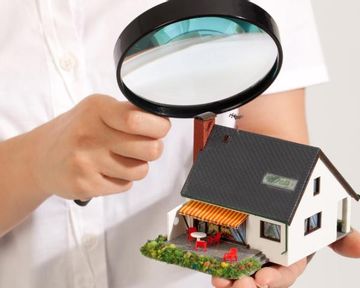Selling a vacant home - tips and tricks to help you successfully market it
As much as we would like to sell our homes on our timeline, it doesn't always work out that way. Markets might shift and we can't delay plans like starting a new job in another city or moving to a different country, which means we might have to move out of our homes before they are sold.
While an empty house might be beneficial in some regards, like being able to host open houses and schedule viewings when it best fits the buyers and not having to also check with the sellers, it does have its own set of challenges.
A vacant home might allow for easy, unhindered access for short-notice viewings, but it’s also easier for a buyer to see the basics of what they are buying, warts and all, and it might make it more difficult for a potential buyer to see it as the ideal home for them as it might not feel like a home.
This is a major stumbling block because people don’t just buy a house, they buy a home and a lifestyle, and when prospective buyers view a property, one of the key factors they take into consideration is whether or not it resonates with them and “feels’ like it could be their home, which is a difficult sentiment to elicit from an empty space.
The trick however is to make the most of what you have with a few clever tips and tricks that will help a vacant home sell:
What to do when selling a vacant home
- Invest in high-quality photography: Empty spaces can be challenging to capture, but professional photographs can highlight the property's features and create a compelling online listing, despite the lack of decor. Hire a skilled photographer to showcase your empty house in the best light.
- Keep up with regular maintenance: An empty house still needs care to maintain its appeal. Ensure the property is clean, well-maintained, and free of any signs of neglect. This includes mowing the lawn, cleaning gutters, and addressing any necessary repairs.
- Ensure all necessary small repairs are completed: Take care of scuffs on walls, replace missing light bulbs and fill wall cracks. Don’t allow prospective buyers start wondering what else could be wrong with the property by neglecting to do small, inexpensive repairs.
- Highlight the potential of the space: Showcase the best features and clearly communicate any renovation or remodelling plans you had for the property. Highlighting the possibilities can attract buyers looking for a project or those seeking a blank canvas to personalise.
- Leverage online marketing: Since the property is empty, potential buyers may rely heavily on online listings so advertise on all the main platforms and real estate websites and use professional photos and compelling descriptions.
- Be flexible with showings: Empty houses can sometimes feel cold, so offering flexible and multiple viewing times allows potential buyers to experience the property in different lights. Accommodating their schedules increases the chances of a successful sale.
- Leave the utilities on: Having lights on, especially in darker areas and rooms, will add warmth to the property and on a practical level, potential buyers will want to check that light switches, taps and fitted appliances are working.
- Consider professional staging services: Empty houses may lack the warmth and appeal that staged homes provide, especially if it’s an older home clearly in need of renovation. Staging helps potential buyers envision the possibilities of each room and can significantly enhance the overall presentation.
What not to do when selling a vacant home
- Neglect security: Vacant properties can attract unwanted attention. Install a security system, ensure all windows and doors are secure, and consider periodic check-ins to prevent issues like break-ins or vandalism.
- Overlook curb appeal: Just because the house is empty doesn't mean the exterior should be neglected and a well-maintained and inviting exterior creates a positive first impression which will encourage buyers to look further. Keep the lawn manicured, add some potted plants, and ensure the property looks inviting from the outside.
- Overprice the property without notable justification: While you may have invested time and money into the property, be realistic about its market value because overpricing can lead to a prolonged listing period and potential buyers losing interest.
- Settle for dull marketing materials: Empty houses can lack character, so it's crucial to compensate with engaging marketing materials. Use creative language and emphasize the unique features of the property to capture potential buyers' attention.
- Underestimate the power of virtual tours: In the absence of physical furniture, virtual tours become even more critical. Give potential buyers the opportunity to explore the property online, allowing them to visualise the layout and flow of the space.
- Delay necessary repairs: Address any issues promptly, even if the house is empty. A property in good condition is more likely to attract serious buyers, and addressing repairs early on prevents potential complications during the sales process.
The old adage ‘you only have one chance to make a first impression’ certainly applies when selling a home, especially in a tough market where there is a lot of competition, so it definitely pays to make the extra effort. Selling an empty house requires a strategic approach and attention to detail, and by balancing online visibility, property presentation, and addressing potential challenges, there is every chance of a successful and stress-free selling experience.

